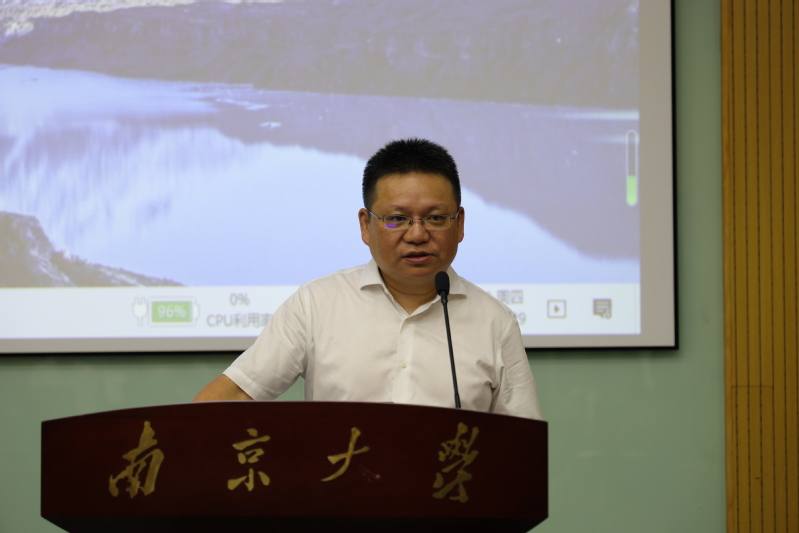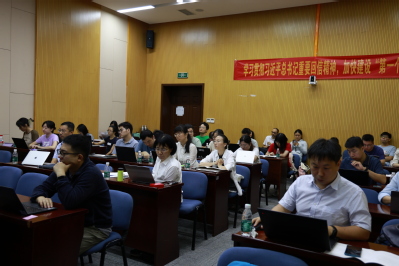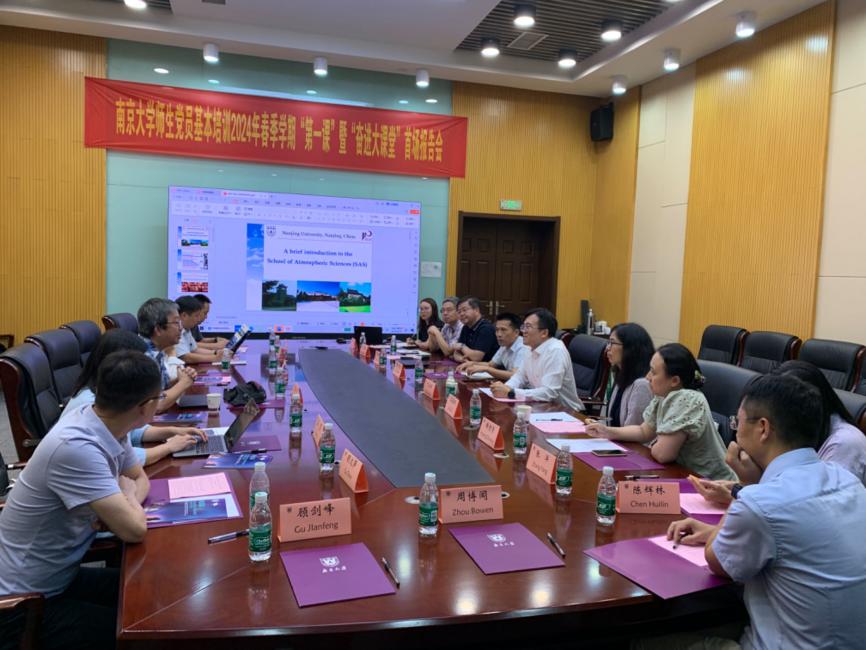From August 28 to 31, 2024, the 2024 NJU-HKUST Symposium on Weather, Climate, and Environmental Research Utilizing Deep Learning was held at Nanjing University. Centered on advancing interdisciplinary collaboration, the event brought together six HKUST faculty members—Prof. Alexis Lau, Prof. Jianzhen Yu, Prof. Hui Su, Asso. Prof. Zhe Wang, Asso. Prof. Xiaoming Shi, and Assistant Prof. Dasa Gu—alongside 18 graduate students. Discussions spanned tropical cyclones and convection, weather-climate dynamics, Earth system science, atmospheric chemistry, and novel applications of deep learning in dynamical modeling and numerical simulations.
Nanjing University showcased its strengths in foundational research areas such as radar meteorology, mesoscale weather dynamics and predictability, air-sea interactions and monsoon variability, atmospheric chemistry, aerosol-cloud interactions, and Earth system science, supported by cutting-edge facilities including mobile radar systems and the SORPES observational base. HKUST highlighted its expertise in atmospheric chemistry, mesoscale dynamics, climate impact studies, and Earth system modeling, bolstered by advanced observational infrastructure such as cloud radar and lidar wind profilers. The workshop emphasized the transformative role of big data and deep learning in atmospheric sciences, positioning hybrid approaches that integrate machine learning with traditional dynamics and numerical modeling as a new paradigm for the field.
The event featured innovative methodologies such as deep learning-enhanced weather-climate data assimilation, satellite data analysis, and large-eddy simulations to unravel coupled atmospheric mechanisms. Activities included keynote lectures, student presentations, and thematic panel discussions.


Prof. Kun Zhao, Dean of the School of Atmospheric Sciences delivered the opening remarks, underscoring the workshop’s mission to bridge theoretical advancements with practical applications. Subsequent academic sessions saw dynamic exchanges between scholars from both institutions. Post-presentation discussions yielded actionable plans to deepen institutional collaboration frameworks, expand joint research initiatives, and establish cross-border student training programs in scientific fieldwork.


Prof. Aijun Ding, Assistant President of Nanjing University, and faculty representatives from Nanjing University also met with the HKUST delegation to explore long-term partnership strategies.
This workshop not only strengthened academic ties between the two universities but also established a platform for resource sharing, knowledge transfer, and collaborative innovation. By aligning their complementary strengths, the institutions aim to drive breakthroughs in extreme weather forecasting and Earth system science, contributing to global climate resilience efforts.
